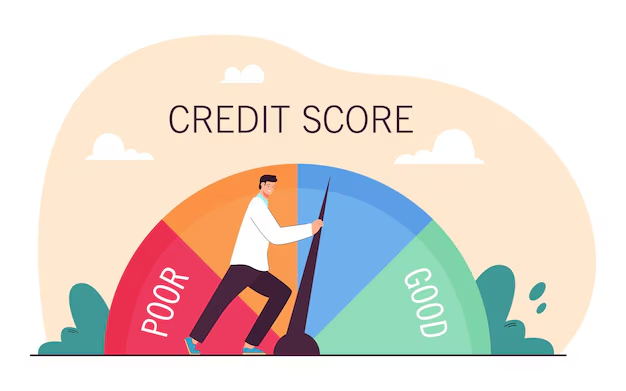What is Credit Score

A credit score is a numerical representation of your creditworthiness. It is derived from your credit history, which includes your borrowing and repayment activities. Here’s a breakdown of what the scores generally mean:
- Excellent (800-850): Exceptional creditworthiness
- Very Good (740-799): Above average, indicating lower risk
- Good (670-739): Acceptable, though not perfect
- Fair (580-669): Some risk to lenders
- Poor (300-579): High risk, often leading to difficulty in obtaining credit
Why is Your Credit Score Important?
Your credit score affects various aspects of your financial life:
- Loan Approval: Lenders use your credit score to decide whether to approve your loan application. A higher score increases your chances of approval.
- Interest Rates: A higher credit score often qualifies you for lower interest rates on loans and credit cards, saving you money over time.
- Credit Limits: With a higher credit score, you might be eligible for higher credit limits.
Factors Influencing Your Credit Score
Understanding what affects your credit score can help you take steps to improve it. Here are the primary factors:
- Payment History (35%): Your record of on-time payments is the most significant factor. Late or missed payments can significantly lower your score.
- Amounts Owed (30%): This reflects your credit utilization ratio, which is the amount of credit you’re using relative to your total available credit. Keeping this ratio below 30% is recommended.
- Length of Credit History (15%): A longer credit history typically boosts your score. This includes the age of your oldest account, the average age of all accounts, and the age of specific account types.
- Credit Mix (10%): Having a variety of credit types (e.g., credit cards, mortgages, auto loans) can positively impact your score.
- New Credit (10%): Opening several new accounts in a short period can lower your score, as it suggests potential financial distress.
Tips to Improve Your Credit Score
Improving your credit score requires time and effort, but it’s achievable with the right strategies:
- Pay Bills on Time: Make sure that all your bills are paid by the due date. Setting up automatic payments can help avoid late payments. which may in turn affect your credit score
- Reduce Debt: Focus on paying down your existing debt, particularly high-interest credit card balances.
- Check Your Credit Report: Regularly review your credit report for errors or discrepancies that might be affecting your score. You can get a free report annually from each of the three major credit bureaus (Experian, TransUnion, Equifax).
- Avoid Opening New Accounts Frequently: Limit the number of new accounts you open, as each application can temporarily lower your score.
a credit score of 680 or above is considered to be a good score. having a good credit score will-
- boost your chances of getting credit cards quickly
- you tend to get quick and easy loan approvals
- having a good credit score enhances your chances of pay a lower interest rate against your loan
- it further increases your loan limit as you can apply for a higher loan amount from any bank.
- you get access to pre-approved loans as well.
- you might get discounts on charges or processing fees.
- it helps get fast approval for rental houses and apartments as a good credit score assures your credit trustworthiness.
- you can manage to get the best car insurance rate with a good credit score. in comparison to bad credit score applicants, you will pay less for your insurance.
To get your free credit score result refer this link – https://www.paisabazaar.com/credit-score/cibil-score-calculation/
To know how to increase CIBIL score refer this link – https://financekaaksha.com/web-stories/how-to-increase-cibil-score/